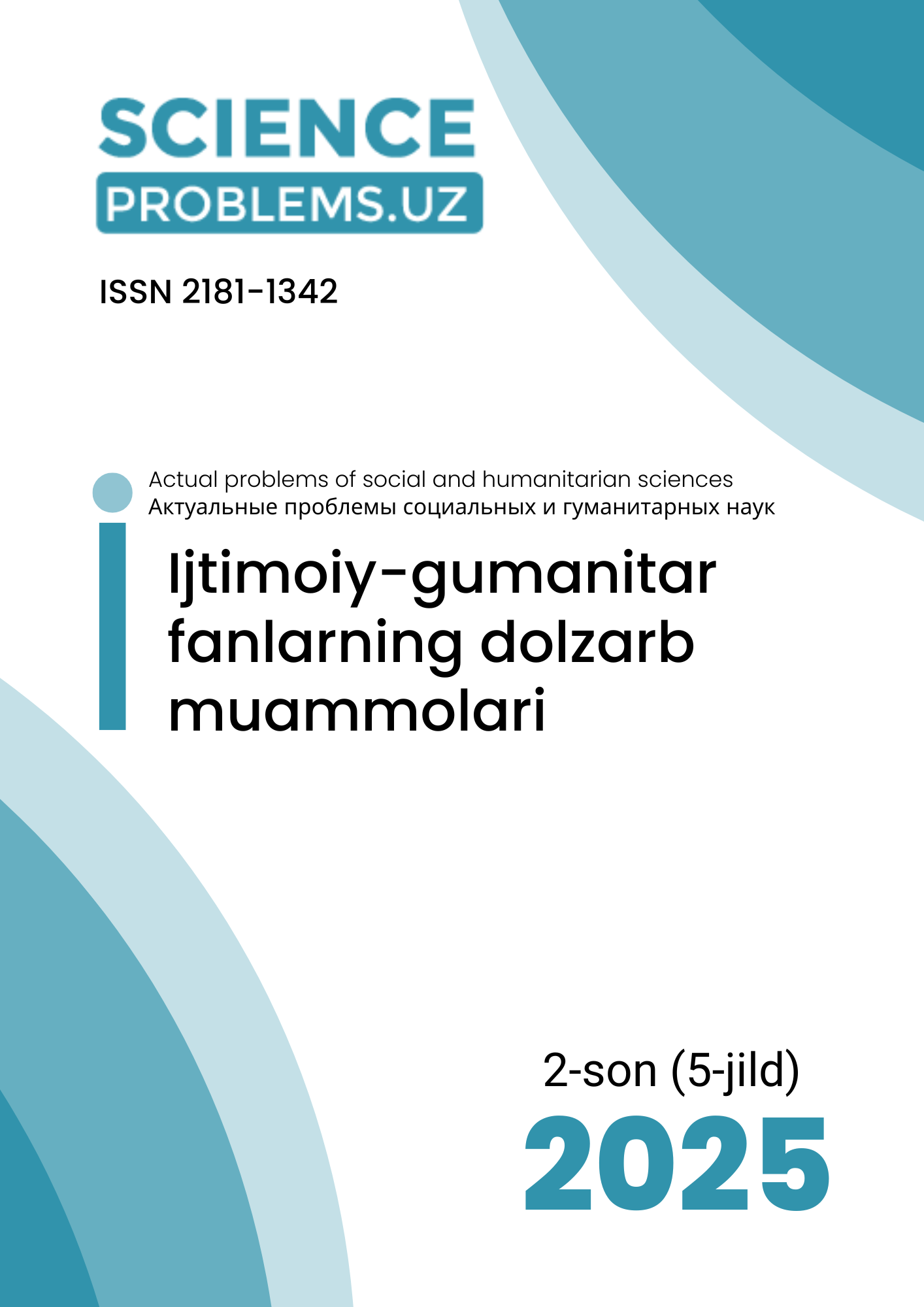VATANPARVARLIK TUSHUNCHASI SHAKLLARINING IJTIMOIY-FALSAFIY TALQINI
Kalit so'zlar
https://doi.org/10.47390/SPR1342V5I2Y2025N41Kalit so'zlar
fuqaro, yoshlar, shaxs, tarbiya, taraqqiyot, transformatsiya, jamiyat, vatanparvarlik, globallashuv, qadriyatlar.Annotasiya
Ushbu maqolada vatanparvarlik genezisi, turlari va ularning ijtimoiy-falsafiy mohiyatini oʻrganishga bagʻishlangan. Tadqiqot vatanparvarlik tushunchasining tarixiy rivojlanishini koʻrib chiqadi, u siyosatga sodiqlik bilan bogʻliq boʻlgan qadimgi davrdan boshlab, vatanparvarlik koʻp qirrali xarakterga ega boʻlgan zamonaviylikkacha. Vatanparvarlikning asosiy turlari, shu jumladan anʼanaviy, fuqarolik va tanqidiy, ularning milliy oʻziga xoslik va ijtimoiy birdamlikni shakllantirishdagi roli tahlil qilinadi. Vatanparvarlikning falsafiy mohiyatiga shaxs, jamiyat va davlat oʻrtasidagi oʻzaro taʼsirni aks ettiruvchi hodisa sifatida eʼtibor qaratilmoqda. Globallashuv, xalqaro keskinlikning kuchayishi va madaniy oʻziga xoslikni saqlab qolish zarurati sharoitida mavzuning dolzarbligi alohida taʼkidlanadi.
Manbalar
1. Mirziyoyev Sh.M. Yangi O‘zbekiston taraqqiyot strategiyasi. - Toshkent: O‘zbekiston, 2022. - B. 102-108.
2. Лихачёв, Д. С. Письма о добром и прекрасном. - Москва: Детская литература, 1985. - С. 112-118.
3. Аристотель / Политика; пер. с др.-гр. С.А.Жебелева. - Санкт-Петербург: Азбука, Азбука-Аттикус, 2024. - С. 180-188.
4. Дюбю Жак. Европейское Средневековье. Культура и общество. - Москва: Прогресс, 1994. - С. 128-134.
5. Хобсбаум Эрик. Нации и национализм после 1780 года. Программа, миф, реальность. - Москва: Весь Мир, 1998. - С. 56-78.
6. Гринфельд, Лия. Национализм: пять дорог к модерну. - Москва: Новое литературное обозрение, 2016. - С. 344-356.
7. Habermas on Law and Democracy. Berkeley and Los Angeles: University of California Press, 1998. - Р. 381-444.
8. Miller David. Citizenship and National Identity, Cambridge: Polity Press, 2000. - P. 27.








